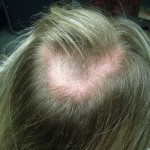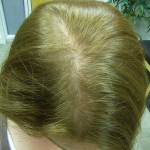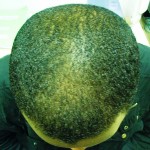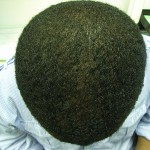Hair-Loss Drug Propecia Blamed for Multiple Problems
07.12.2012 in UncategorizedLOS ANGELES (CN) – A man who took the male pattern baldness drug Propecia for four years claims it gave him “severe sexual dysfunction and cognitive impairment.”
Jason McCord sued Merck & Co. in Federal Court.
Merck has been sued at least 15 times in the past two years for similar claims, according to the Courthouse News database.
McCord says he was 36 when he was prescribed Propecia, in 2006, and he took it for four years. He says the trade-off wasn’t worth it.
“Male pattern hair loss affects 30 percent of men by the age of 30 years and 50 percent of men by the age of 50 years. Men who suffer from hair loss may be perceived as older and less physically and socially attractive,” according to the complaint.
“Male pattern hair loss is a common condition thought to be caused by a combination of genetic factors and a hormone called dihydrotestosterone (‘DHT’).
“DHT is a substance in the body that can shrink hair follicles until a person no longer has hair on top of his head.
“Finasteride is a 5-alpha reductase inhibitor that decreases the conversion of testosterone to DHT, therefore, preventing hair loss.
“Propecia, or finasteride, may produce undesirable side effects to patients who use the prescription drug, including but not limited to, sexual dysfunction and cognitive impairment.
“The rates of the sexual dysfunction as a result of finasteride are reported to be as high as 39 percent in published clinical studies. In addition, it has been reported in 2003 that only 50 percent of patients experience resolution of their sexual function adverse events after discontinuation of finasteride.”
The U.S. FDA approved Propecia for hair loss in 1997 and more than one million people have taken it by prescription, McCord says.
Before he took the drug, McCord says, he “did not suffer from sexual dysfunctions or cognitive impairment. However, while consuming Propecia, plaintiff began to suffer severe sexual dysfunction and cognitive impairment. Plaintiff’s adverse effects continued after Plaintiff discontinued using Propecia.”
He claims: “Defendants knew or should have known that Propecia, when taken as prescribed and intended, causes and contributes to an increased risk of persistent and/or permanent serious and dangerous side effects including, without limitation, cognitive impairment, development of depression, and various forms of sexual dysfunction such as erectile dysfunction, reduced ejaculate volume, diminished or reduced libido, reduced sexual sensation and/or infertility (‘sexual dysfunction’) even after discontinuation of use.”
Defendants Merck & Co. and Merck Sharpe & Dohme sell their 1-milligram tablet of finasteride as Propecia.
Finasteride was first approved by the FDA in 1992, for treatment of benign prostatic hyperplasia, or enlarged prostate, according to the complaint. It was marketed then as Proscar.
In 2009, Swedish researchers concluded that Propecia could cause permanent erectile dysfunction, McCord says. That led to warnings on Propecia labels in several European countries, including the United Kingdom and Italy.
“According to the FDA’s website, defendants have updated the Propecia label in the United States nine times since introducing the drug into the market, and none of the label revisions have included a warning regarding persistent and/or permanent sexual dysfunction in patients that discontinued use of the prescription drug,” the complaint states.
“In April of 2011, defendants updated its ‘Patient Information about Propecia’ insert to indicate patients have reported ‘difficulty in achieving an erection that continued after stopping the medication.’ Upon information and belief, defendants’ updated insert is the first warning it gave to patients in the U.S. regarding persistent and/or permanent sexual dysfunction after discontinuation of use.
“Upon information and belief, the Propecia label distributed in the United States continues to fail to warn users of persistent and/or permanent sexual dysfunction and cognitive impairment after discontinuation of use.”
McCord says he has “suffered significant pain and suffering, and his quality of life has severely diminished.”
He seeks damages for strict liability, negligence, breach of implied warranties, breach of express warranty, fraudulent concealment, unfair and deceptive trade, and negligent infliction of emotional distress.
He is represented by Timothy Beck of Minneapolis.
Neither the law firm nor Merck immediately responded to requests for comment.
FOR A SAFE ALTERNATIVE READ BELOW.
CHECK OUT OUR RESULTS
Do you have Hair Loss Problems, read our Hair Loss Help













